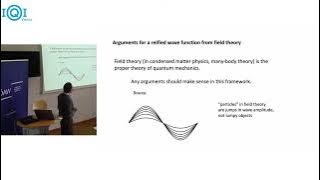|
YouTube
|
A connection to YouTube will be established to view videos.
|
-
|
Connection
|
YouTube
|
|
SoundCloud
|
A connection to SoundCloud will be established to play audio files.
|
-
|
Connection
|
SoundCloud
|
|
Twitter
|
A connection to Twitter will be established to display tweets.
|
-
|
missing translation:
type.
|
Twitter
|
|
_cs_c
|
Indicates whether the user has consented to ContentSquare tracking.
|
394
days
|
missing translation:
type.
|
Spotify (ContentSquare)
|
|
_cs_id
|
Stores a unique user ID for ContentSquare session analysis.
|
394
days
|
missing translation:
type.
|
Spotify (ContentSquare)
|
|
_ga
|
Used to distinguish users.
|
400
days
|
missing translation:
type.
|
Google Analytics
|
|
_ga_BMC5VGR8YS
|
Used by Google Analytics to persist session state.
|
400
days
|
missing translation:
type.
|
Google Analytics
|
|
_ga_S0T2DJJFZM
|
Used by Google Analytics to persist session state.
|
399
days
|
missing translation:
type.
|
Google Analytics
|
|
_ga_ZWG1NSHWD8
|
Used by Google Analytics to persist session state.
|
400
days
|
missing translation:
type.
|
Google Analytics
|
|
_ga_ZWRF3NLZJZ
|
Used by Google Analytics to persist session state.
|
400
days
|
missing translation:
type.
|
Google Analytics
|
|
_gid
|
Used to distinguish users.
|
1
days
|
missing translation:
type.
|
Google Analytics
|
|
_ScCbts
|
Stores temporary session or playback preferences.
|
6
days
|
missing translation:
type.
|
Spotify
|
|
_scid
|
Spotify advertising ID used for analytics and retargeting.
|
395
days
|
missing translation:
type.
|
Spotify
|
|
_scid_r
|
Spotify advertising ID used for analytics and retargeting.
|
395
days
|
missing translation:
type.
|
Spotify
|
|
eupubconsent-v2
|
Stores the IAB Transparency & Consent Framework string.
|
364
days
|
missing translation:
type.
|
IAB / Spotify
|
|
OptanonAlertBoxClosed
|
Saves the state of your data protection consent.
|
364
days
|
missing translation:
type.
|
OneTrust
|
|
OptanonConsent
|
Saves the state of your data protection consent.
|
365
days
|
missing translation:
type.
|
OneTrust
|
|
sp_adid
|
Spotify advertising identifier.
|
365
days
|
missing translation:
type.
|
Spotify
|
|
sp_landing
|
Tracks which page the user landed on within Spotify.
|
1
days
|
missing translation:
type.
|
Spotify
|
|
sp_m
|
Stores the user’s market region (Spotify).
|
399
days
|
missing translation:
type.
|
Spotify
|
|
sp_t
|
Session token used for Spotify playback and access.
|
365
days
|
missing translation:
type.
|
Spotify
|


